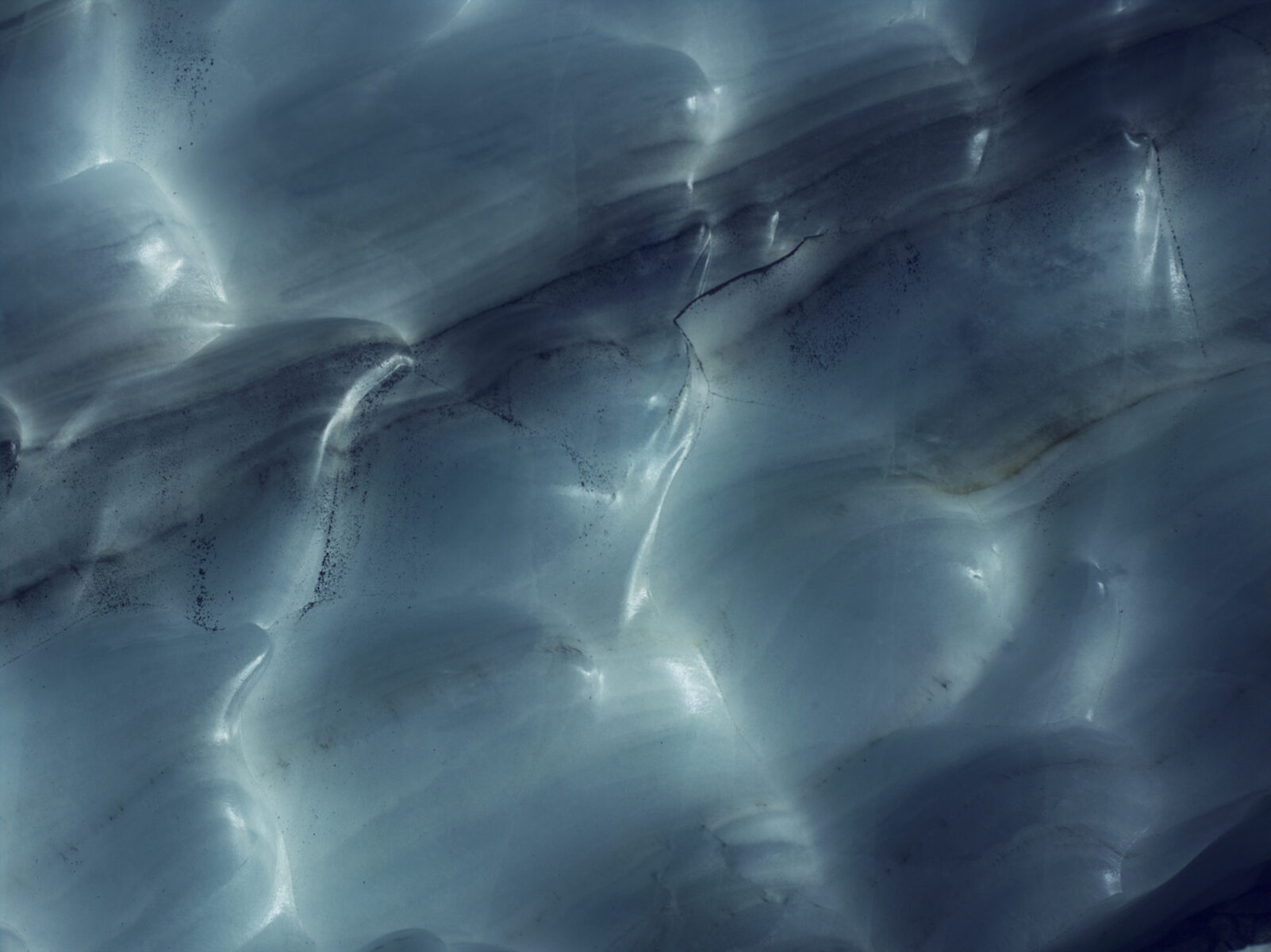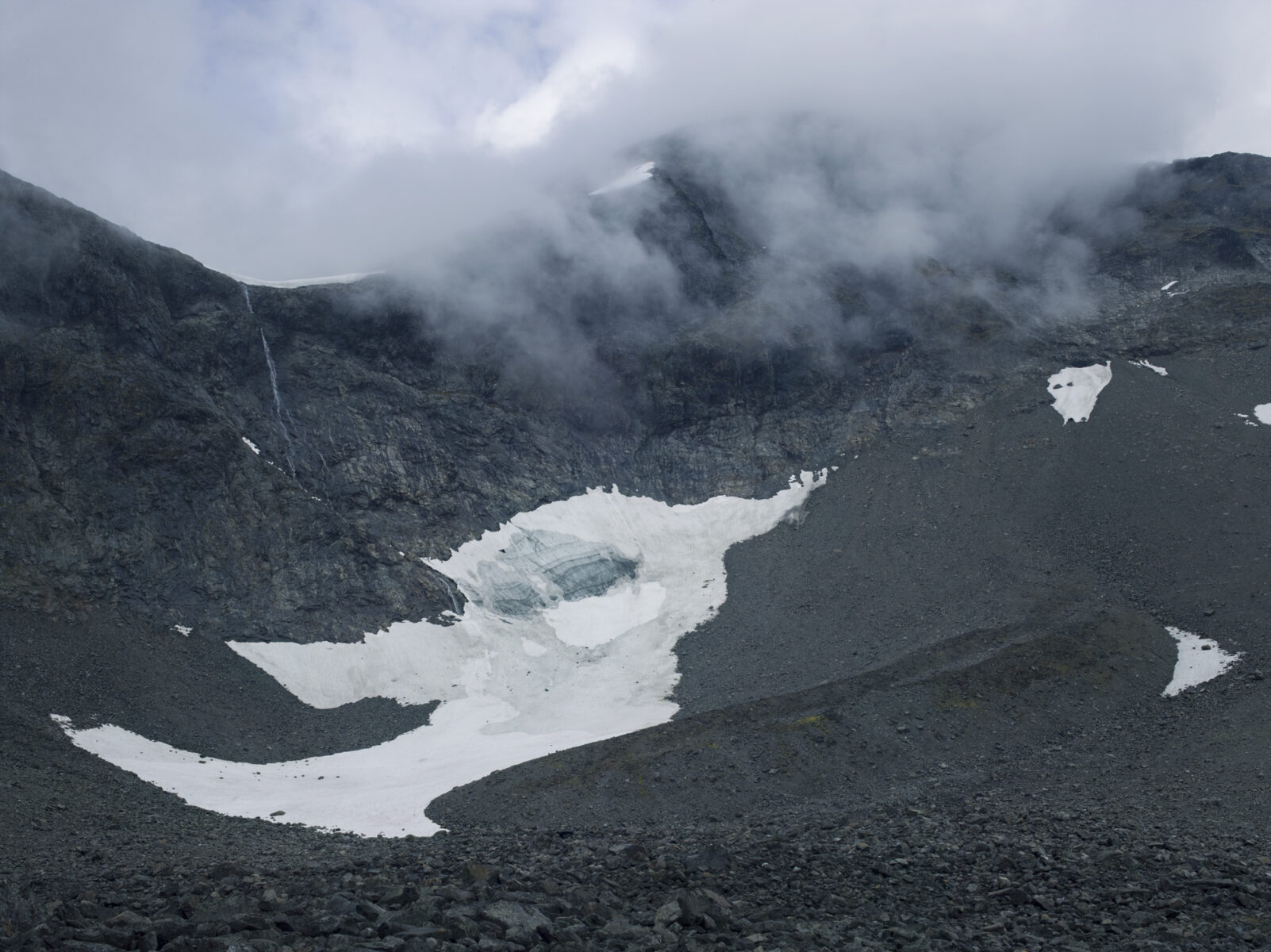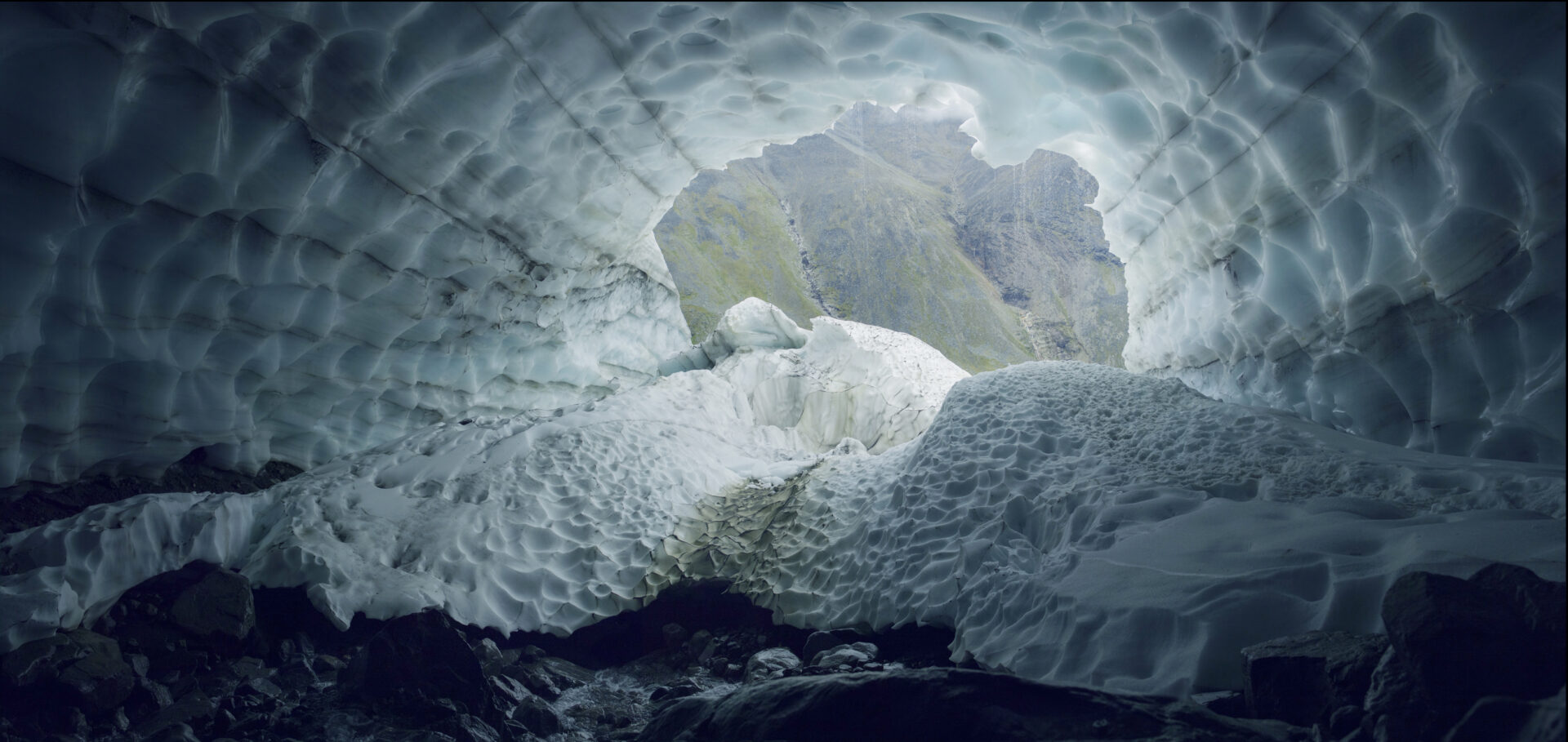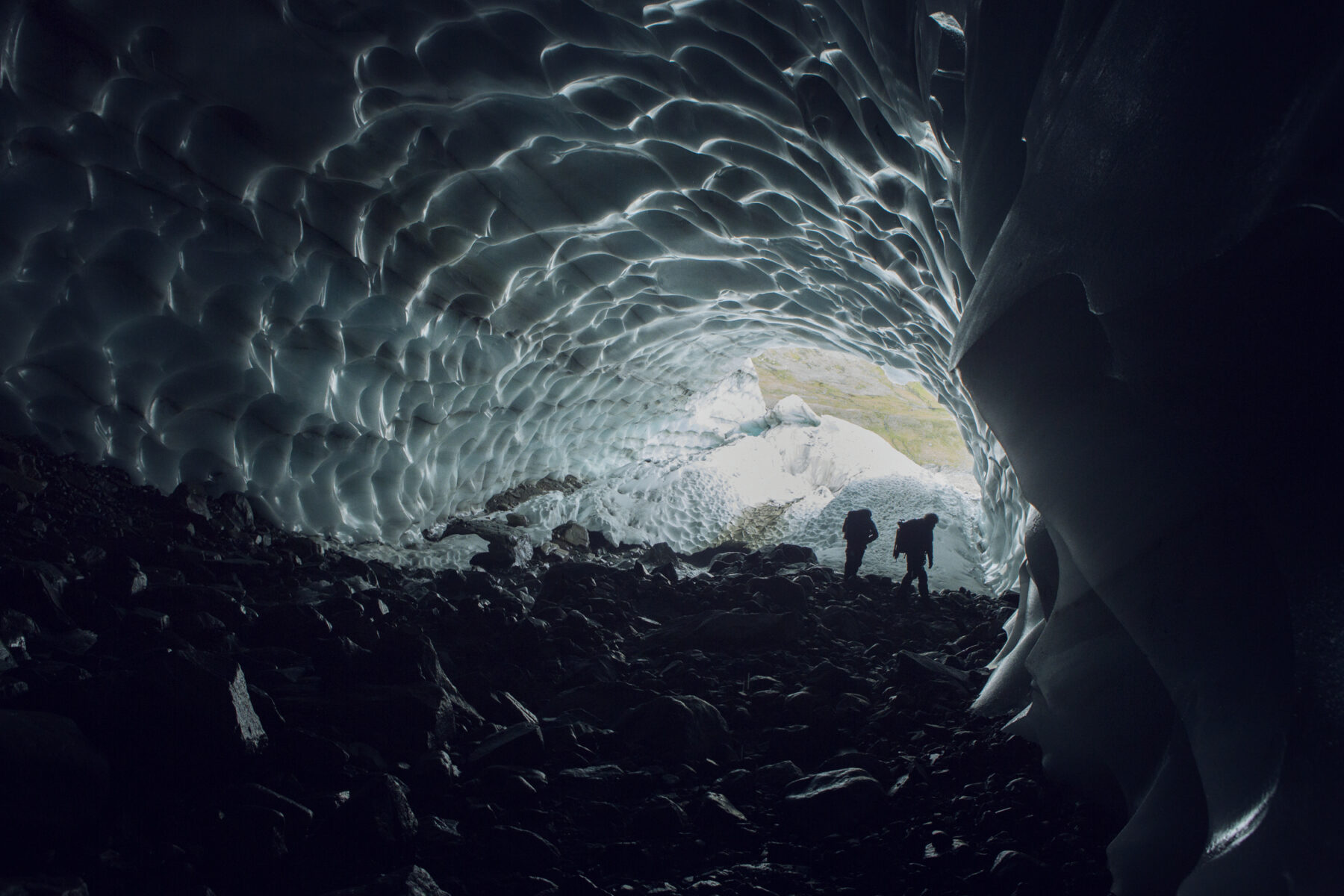Trafala Valley
In 2018 the highest point in Sweden changed
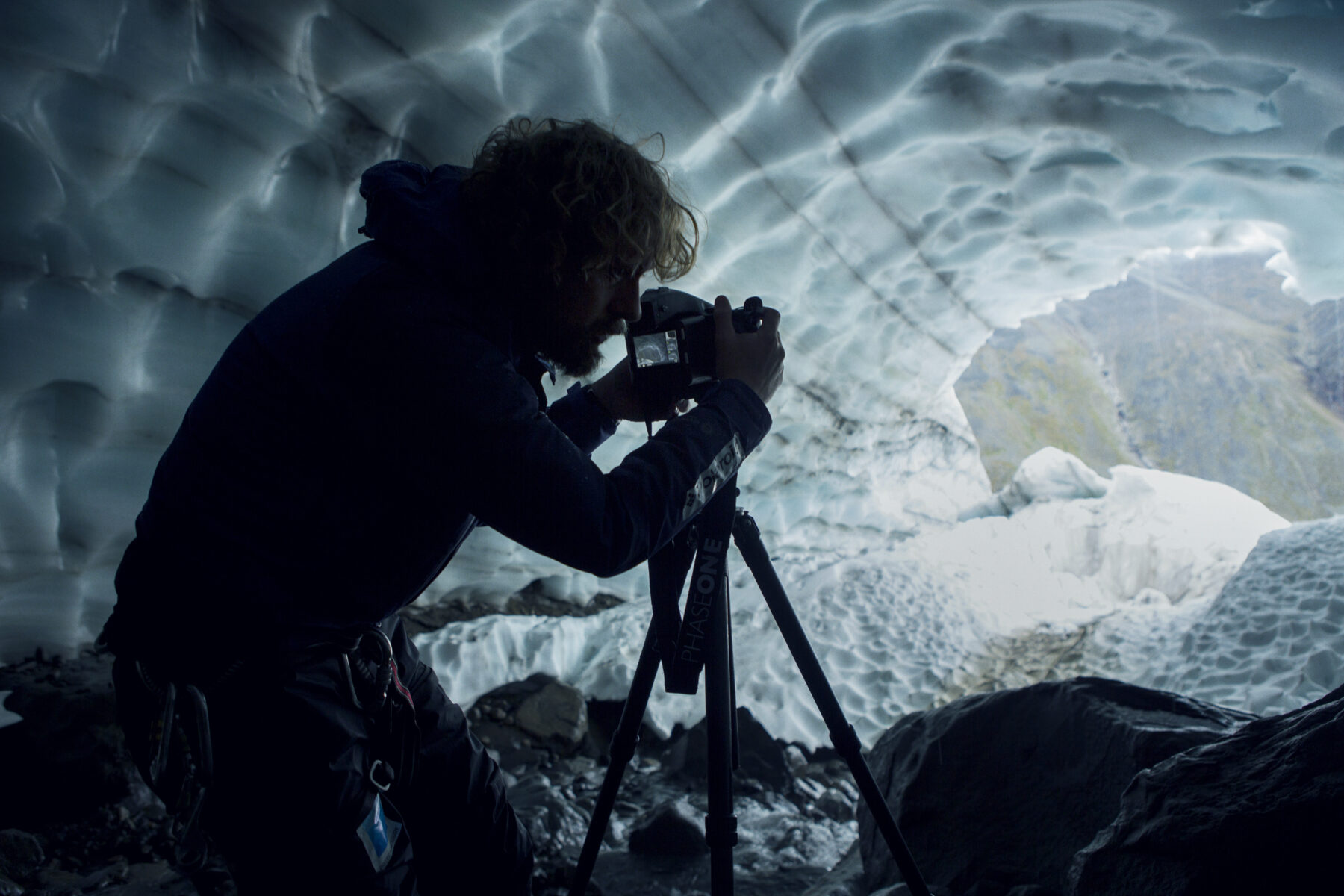
Klaus Thymann’s expedition to the Tarfala Valley, set against the backdrop of Sweden’s Kebnekaise mountain, was a profound examination of glacial retreat and the unmistakable fingerprints of climate change. In a stark revelation of environmental transformation, the South peak of Kebnekaise, once the nation’s tallest point, surrendered its title to the North peak in 2018 after a significant melt caused by excessive heat.
The journey was not only a venture into the chilling beauty of the Arctic expanse but also a scientific endeavor aimed at capturing the state of the glaciers through the lens of his camera. The still images he brought back serve as a crucial archive, chronicling the state of these frozen giants over time. These photographs are not merely pictures; they are valuable data points that map the narrative of climate change’s impact on these ancient ice formations.
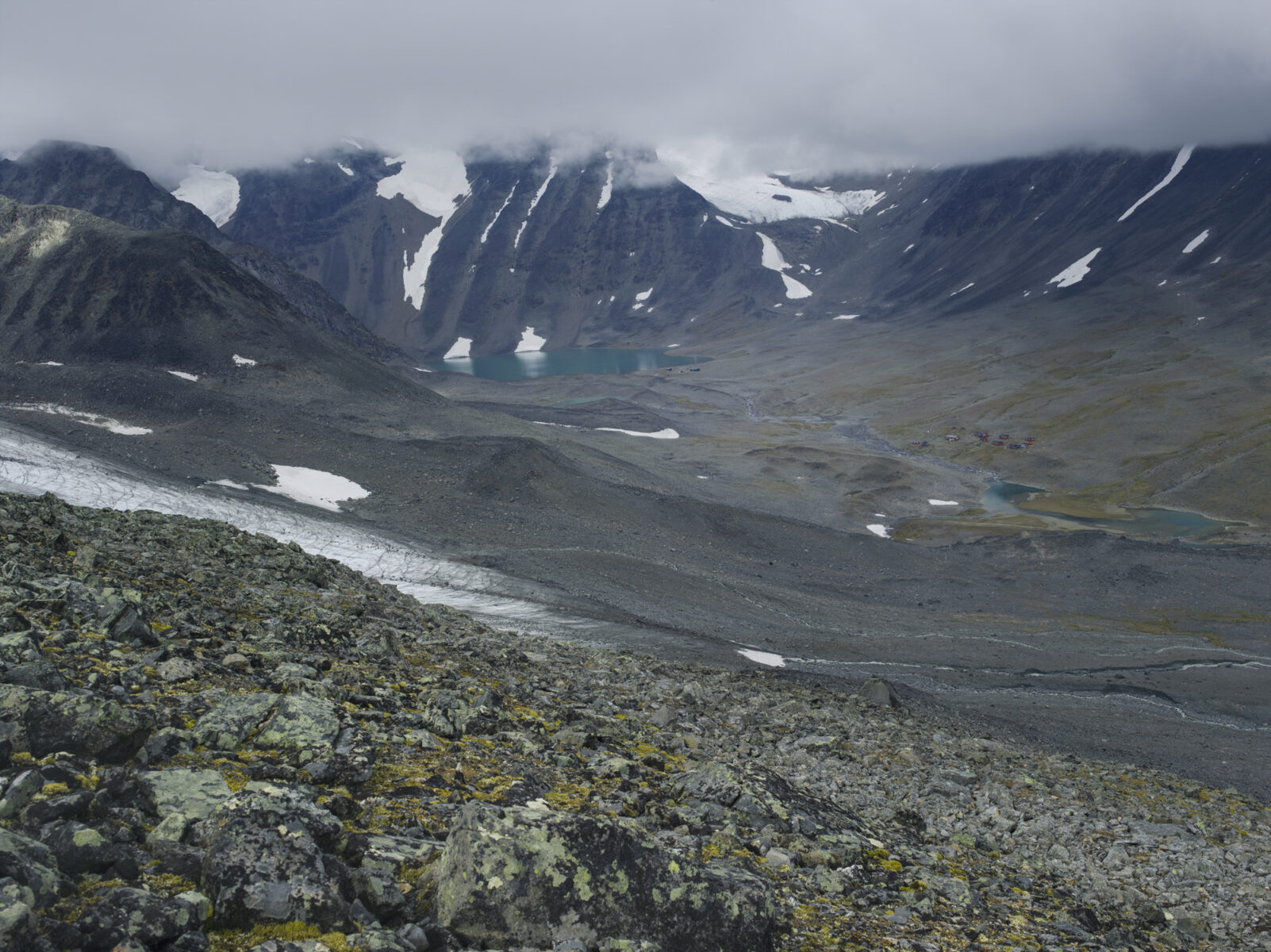
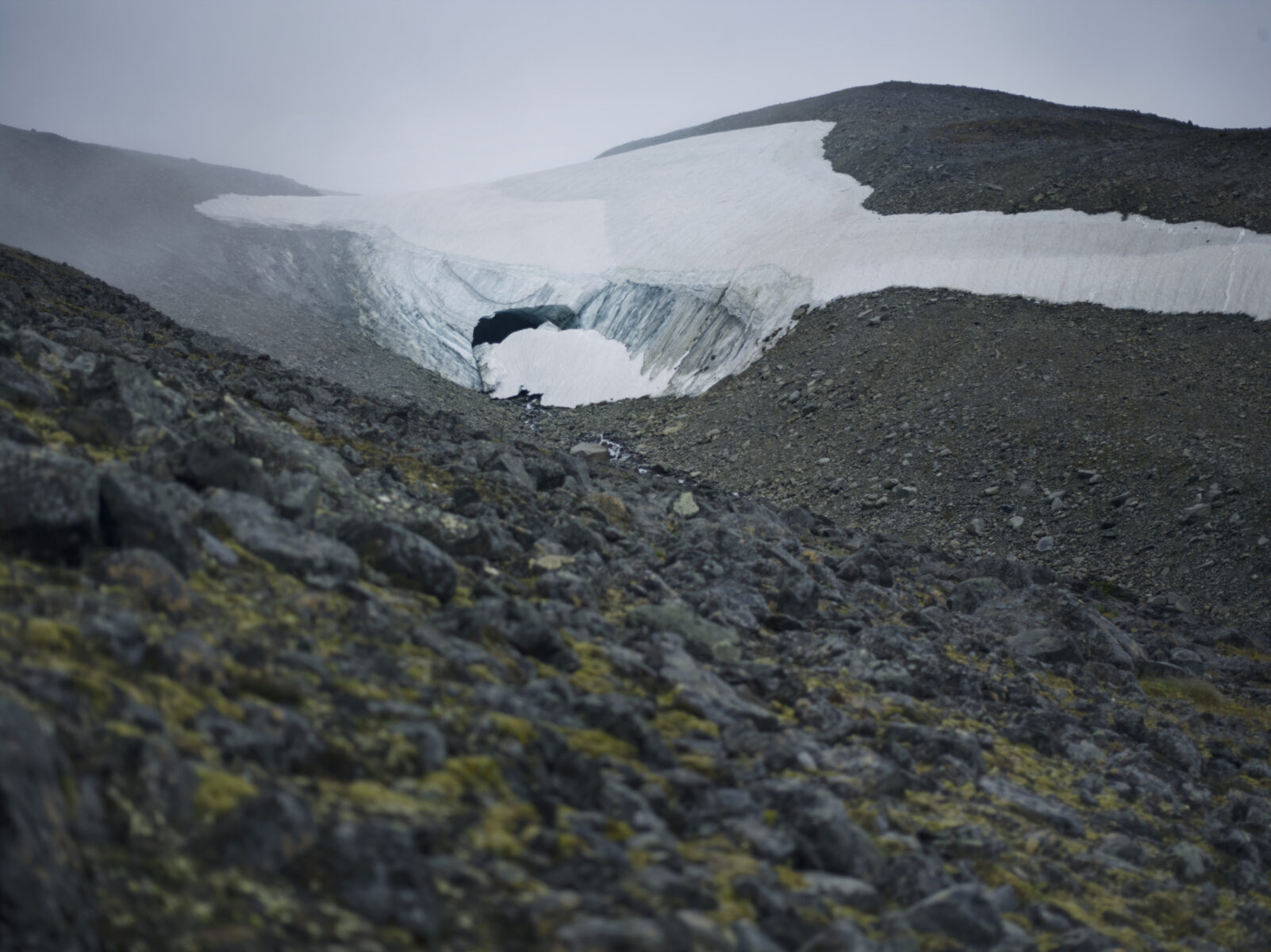
What once were vast expanses of ice are now stark reminders of the vulnerability
Going beyond traditional documentation, the team embarked on a creative venture to visualize historic changes through the medium of photogrammetry. By sourcing images from various years—1946, 1959, 1980, and 2017—the team, in collaboration with experts like Erwin van den IJssel of PostPanic and Erik Schytt Holmlund, crafted a visual story that brings to life the gradual yet relentless retreat of the glaciers. This photogrammetry film is more than a visual feast; it’s a compelling testament to the rapid environmental changes unfolding over decades.
As the photogrammetry film progresses, viewers are confronted with the undeniable truth of human influence on these landscapes. What once were vast expanses of ice are now stark reminders of the vulnerability of our planet’s natural wonders. Thymann’s work in the Tarfala Valley stands as both a call to awareness and a historical record of the urgency with which we must address the causes of climate change. It emphasizes that the melting glaciers are not just a local concern but a global emergency, echoing the shifts happening across the world’s icy realms.
